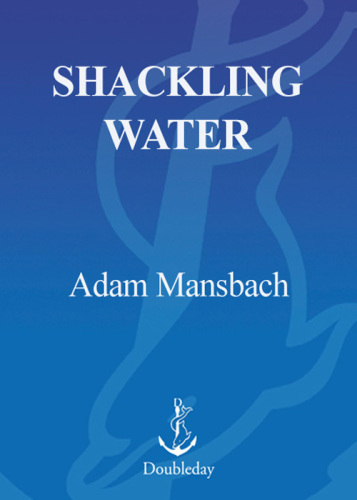
Shackling Water
- اطلاعات
- نقد و بررسی
- دیدگاه کاربران
نقد و بررسی

January 21, 2002
A talented African-American saxophonist moves from Boston to Harlem to study with the jazz master he idolizes in Mansbach's first novel, a passionate debut that succeeds despite an abundance of plot clichés. Latif Pearson, the young protagonist, gets hooked on the sounds of Albert Van Horn; after years of building his chops, 19-year-old Latif gets up the nerve to make the move to New York, where he spends his nights watching Van Horn play from the sidelines. The dark side of Latif's debut comes when he takes a job running drugs for the local dealer, but he is able to make it work as he adds a relationship to the mix, falling in love with a beautiful white painter named Mona. The ambitious, precocious Latif idolizes Van Horn, but when the older musician finally invites him to some private jam sessions and then onstage, Latif puts so much pressure on himself that he implodes and succumbs to the lures of heroin. Mansbach gets past the hoary plot clichés with some strong characterizations, although his prose waxes purple when he writes about the music and Latif's street life: 'The horn dipped and bobbed above the amniotic ocean... vanishing inside the grave of Icarus only to reanimate ichthyoid." Setting aside these flaws, both hardcore and would-be jazz fans will find plenty of meat on the bones of Mansbach's debut; with a more innovative plot, it might have been a truly memorable book. Agent, Richard R. Abate. (Mar.)Forecast:Though a bit dated in theme and likely to appeal mostly to New York readers, this promising novel augurs well for Mansbach's future.

Starred review from February 15, 2002
This might be the best fictional work about jazz since James Baldwin's beautiful and soulful Sonny's Blues. A K nstlerroman (artist's novel), this first novel tells the story of Latif James-Pearson, an aspiring yet often self-doubting young African American, as he moves from Boston to New York to become a professional jazz saxophonist. The first third of the book is a verbal feast, as Mansbach's fiercely textured prose powerfully conveys the New York jazz scene of the 1990s and superbly echoes the rich cadence and rhythm of a fantastic jazz riff. While the novel loses some of its narrative momentum in the middle and latter stages of the story the main character's seemingly inevitable bout with narcotics is forced and probably unnecessary it nevertheless presents an often searingly moving and dense account of what motivates a young, talented jazz musician. Mansbach, who received his M.F.A. from Columbia University and performs with jazz and hip-hop musicians as a spoken-word artist, is definitely a writer to watch. Highly recommended for all public and academic libraries. Roger A. Berger, Everett Community Coll., WA
Copyright 2001 Library Journal, LLC Used with permission.

Starred review from February 15, 2002
Mansbach's young African American protagonist has been an indifferent student of the saxophone, but when his teacher plays him a recording by a master, tenor man Albert Van Horn, Latif experiences an epiphany, and becomes devoted to his horn. Just before his nineteenth birthday, he leaves his Boston home for New York City, where Van Horn is playing an extended gig. Disciple Latif never misses a performance and is soon drawn into Van Horn's circle, a tricky relationship with a white lover, and a dangerous flirtation with heroin. The archetypal artist hero seeking truth and beauty, Latif must battle monsters, wander in the wilderness, and face death as part of his rites of passage. First-time novelist Mansbach, whose mentor is surely the great jazz writer and novelist Albert Murray, writes with authority, precision, and verve of Latif's initiation and the passionate music he loves, and readers who share Mansbach's ardor for the sky-scraping, core-of-the-earth-mining jazz of John Coltrane and Miles Davis will be enthralled by his ravishing musical descriptions. As his hero struggles with the conflictful demands of love and art, oscillates between determination and hopelessness, and faces the demon heroin, Mansbach illuminates music's spiritual dimension and plumbs the sorrow and rage at the core of so many black artists. This bold, resonant portrait of the artist as a young man isn't flawless, but Mansbach's eloquence and energy are unwavering, and his music is divine. (For more recommended works by talented black male writers, see the Read-alikes column on the opposite page.)(Reprinted with permission of Booklist, copyright 2002, American Library Association.)




دیدگاه کاربران